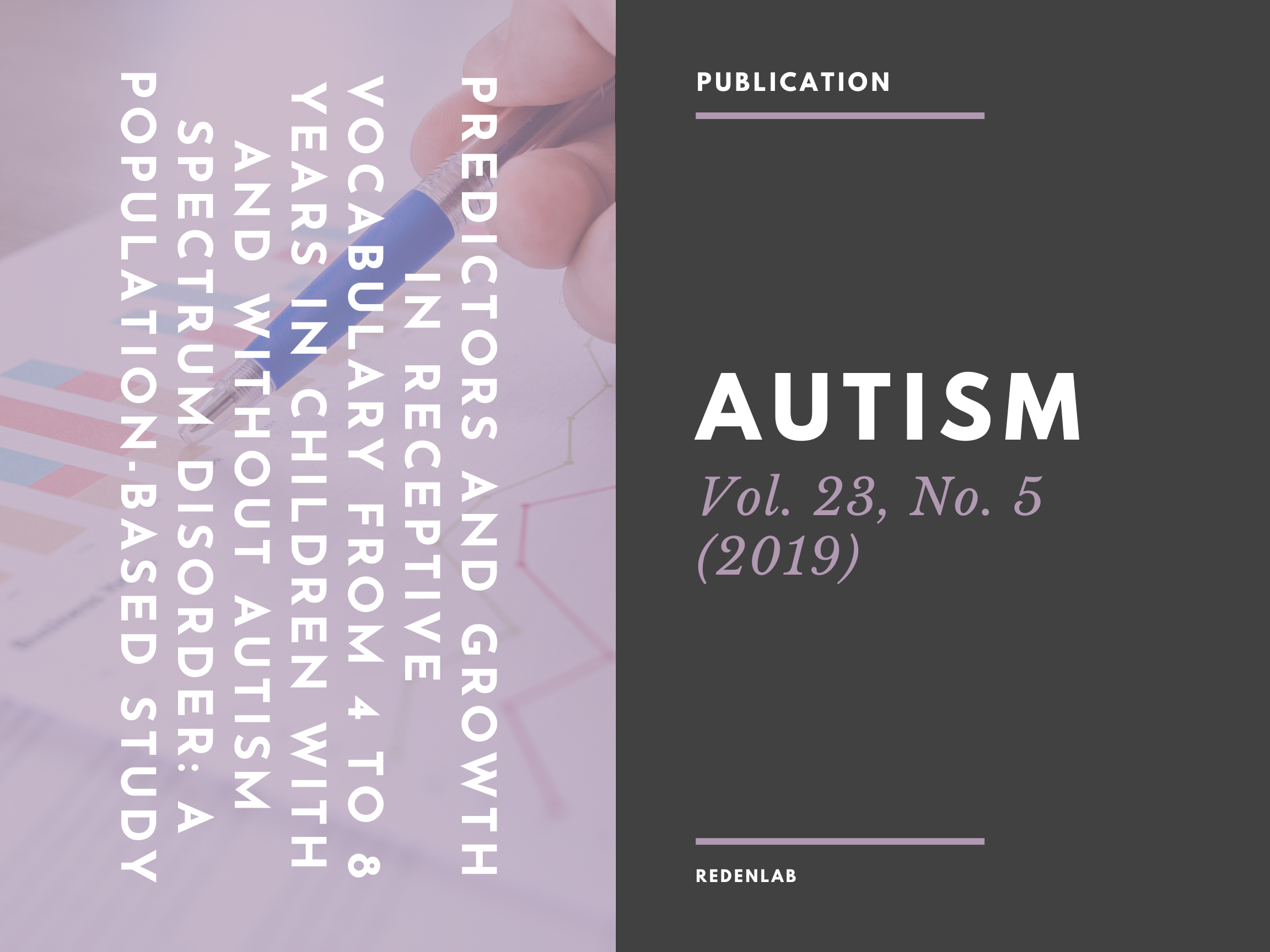SCIENCE: Predictors and growth in receptive vocabulary from 4 to 8 years in children with and without autism spectrum disorder

Few studies have examined growth and predictors of receptive vocabulary in children with autism spectrum disorder. Here we aimed to compare receptive vocabulary from 4 to 8 years and identify predictors of receptive vocabulary, at 8 years, in children with and without autism spectrum disorder. Participants were drawn from a nationally representative population-based study with two cohorts recruited at birth (N = 4983) and kindergarten (N = 5107). Receptive vocabulary growth was compared for children with and without autism spectrum disorder at 4 (n = 188, n = 7136), 6 (n = 215, n = 7297) and 8 (n = 216, n = 7408) years. Predictors of receptive vocabulary were analysed. Estimated mean receptive vocabulary scores for children without autism spectrum disorder were 2.3 units higher than the autism spectrum disorder group across three time points. This difference was significant (p = 0.004; 95% confidence interval 0.769-3.927). Children with and without autism spectrum disorder progressed at a similar pace. There was no significant difference between the proportions of children with and without autism spectrum disorder who had stable, improving and declining trajectories. Age was the only significant predictor of greater receptive vocabulary growth in children with autism spectrum disorder. Baseline receptive language and nonverbal IQ were significant predictors of receptive vocabulary ability at 8 years. These findings inform prognostic advice given to families on language outcomes.
Click here for more details.
